What is behind the success of Georgian rugby?
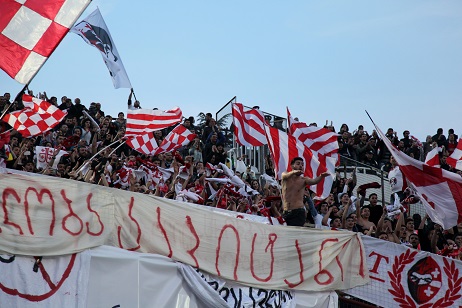

World Rugby officials have announced the Under 20 Championship will be held in Georgia in 2017.
They recognised that the Georgian rugby union has shown the "outstanding progress" and the side has improved "tremendously" in past years.
The latest achievement was the Georgian U20 team’s victory over pre-tournament favourites and being crowned World Rugby U20 Trophy winners yesterday.
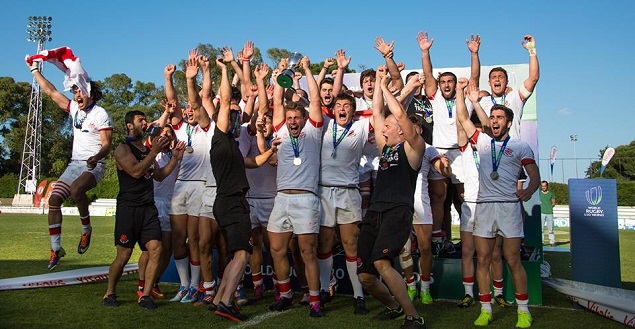
Georgia's U20 team was crowned 2015 World Rugby Under 20 Trophy winner for the first time in Georgia's rugby history in Lisbon, Portugal on May 25, 2015. Photo from Georgian Rugby Union official Facebook page.
This came not long after Georgia’s Under 18 side achieved a historic result a month ago when they beat Ireland and Italy in penalty shootouts to reach their first-ever Rugby Europe Under 18 Championship final.
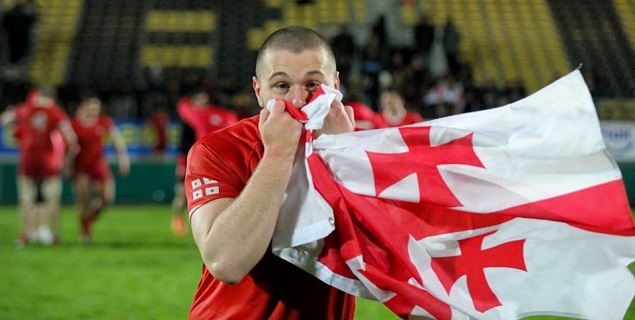
This was the first time in Georgian rugby history that the young Georgian team played in the Elite Division final. Photo from Georgian Rugby Union official Facebook page.
In March, Georgia’s national rugby team, commonly known as the Lelos, won the European Nations Cup for the fifth consecutive time, cementing a name for themselves as the leading Tier 2 nation.
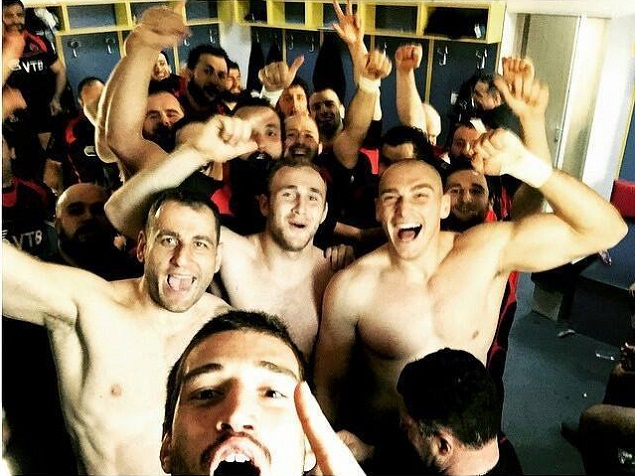
Georgia's national rugby team - the 2015 European Nations Cup champions; Photo from Georgian Rugby Union official Facebook page.
So what is behind the success of Georgian rugby?
Agenda.ge asked this question to a range of people including fans, professionals and those in the industry. These are their answers.
National Team Head Coach
Milton Haig, head coach of Georgia's national rugby team believed there was not one single thing that was responsible for his team's success, rather a lot of different facets working well together had seen the side improve immensely.
"From modern coaching of our age grade and senior players at national level to the improvement of club level rugby across the board, these aspects have helped the overall success we currently enjoy,” said Haig, the New Zealand-born. He was reluctant to take credit for the team's recent achievements, however Western media stated he had taken the Georgian side to "a whole new level”.
Meanwhile Georgia's recent big achievements saw the Georgian side improve its world ranking; it jumped above Italy and took 14th place in World Rugby standings. This meant the Georgian side was ranked higher than a Tier 1 nation for the first time in history.
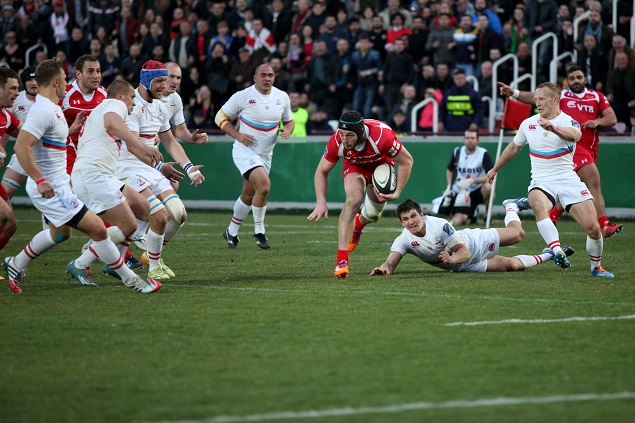
As of today, in world standings Georgia ranks higher than a Tier 1 nation for the first time in history. Photo by Nino Alavidze/Agenda.ge.
This triggered discussions about Georgia’s participation in the most prestigious European tournament - Six Nations. Coach Haig shared his opinion on this too.
"Georgia's best option to compete with the current Six Nations is if they expand the competition to Seven Nations," he told Agenda.ge.
"Certainly from a playing point of view we would be able to compete with Italy and Scotland but it would take us at least a year or two to compete with the top three teams.”
Gorgodzilla
"The Georgian spirit” was what leading Georgian player Mamuka Gorgodze belived to be behind the Georgian rugby success in the first place.
Gorgodze, nicknamed Gorgodzilla, was named among the top 100 current rugby union players by UK newspaper The Telegraph earlier this year.
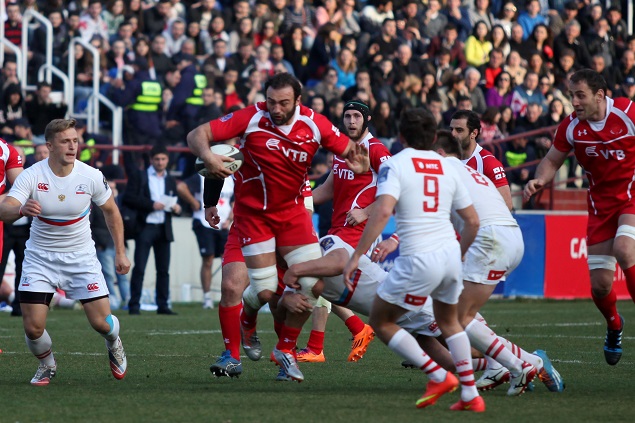
Mamuka Gorgodze, in the centre, was ranked 60th in The Telegraph's top 100 list. Photo by Nino Alavidze/Agenda.ge.
Gorgodze, who can play any lose-forward position in the national side, currently played in the top French professional rugby competition for Toulon, having signed with the club in 2015 after having played for Montpellier since 2005.
The Telegraph ranked him 60th on the list and praised his power on the field.
"There cannot be more terrifying sights on a rugby field than "Gorgodzilla” in full flight,” the newspaper wrote.
The second reason for Georgia's recent success was the financial support Georgian rugby had enjoyed in the past years, Gorgodze said.
"But what’s more important,” he told Agenda.ge, "is that these finances have been directed to the right direction.”
Gorgodze said investing in young players was a good idea and the result of this action was "the miracle” U18 Georgians achieved in March.
Funding
Speaking of financial support, in 2014 the Georgian Rugby Union budget increased three times comparing to the previous year and made slightly more than 13 million GEL. Currently, rugby enjoys the largest budget compared to any other team sport in Georgia.
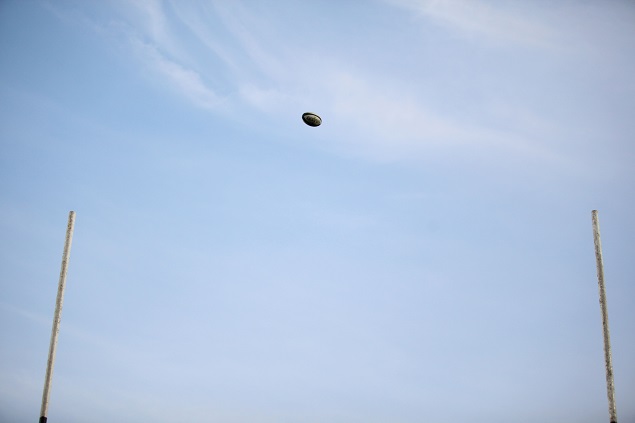
Sixteen new rugby stadiums have been built across Georgia during past years. Photo by Nino Alavidze/Agenda.ge.
The Cartu Charity Foundation - a charity fund established and financed by Georgian tycoon and former Prime Minister Bidzina Ivanishvili - has been funding the Georgian Rugby Union for years. Sixteen rugby stadiums have been built and 16 more were planned across Georgia using Cartu Charity Foundation funds.
While world rugby officials announced the location of the Under 20 Championship, World Rugby Head of Competition and Performance Mark Egan said: "There has been a remarkable transformation in the standard of rugby facilities in Georgia over the past seven years thanks to a multi-million dollar facility investment programme funded by the Cartu foundation and supported by the Georgian Government.
"Georgia now boasts a multitude of world class training and playing facilities that would be the envy of most Tier 1 Unions.”
Fans
Agenda.ge asked what fans believed to be the reason for the success of Georgian rugby on the Georgian rugby supporters’ official Facebook page. The answers were diverse.
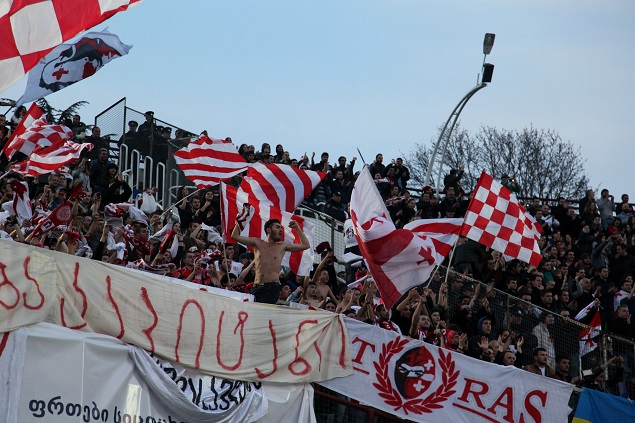
Komagebi are the group of supporters who are known to be most enthusiastic about encouraging the national teams in the country. Photo by Nino Alavidze/Agenda.ge.
"Rugby is our game,” said rugby fan Nini Makasarahsvili, "but sometimes I wonder maybe we just have good rugby players, just like we had good football players one time?”
Others did not agree with the second part of her comment.
"We are strong in endurance sports, in general,” Beso Bakhtadze wrote. "The way we play rugby is mostly aggressive. We have a tradition of wrestling and Lelo Ball, which helped us become skilled in all games that require strength.”
Meanwhile "the Georgian spirit”, "warrior nature”, good funding, good management, professionalism and commitment were commonly mentioned in the answers.
"The guys put their hearts and souls into whatever they do,” Nikusha Oqriashvili said.
Everyone agreed that the "love towards the homeland” had something to do with the teams' successes.
The captain
The captain of the Lelos Shalva Sutiashvili believed uniting everyone – fans, coaches, managers, doctors, rugby officials and players around one goal, developing Georgian rugby - was what had contributed to the team's success.
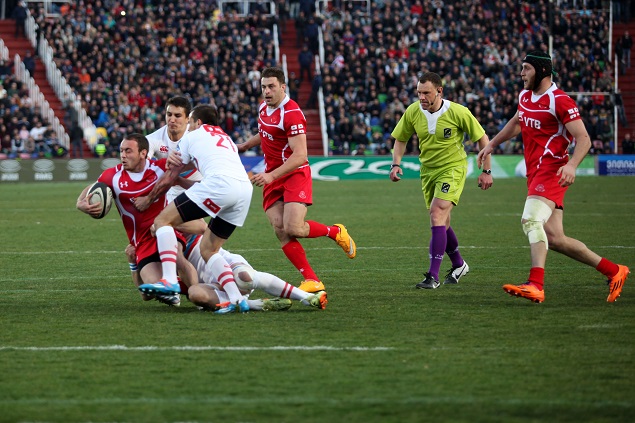
Shalva Sutiashvili (in the centre), captain of the Georgian national team. Photo by Nino Alavidze/Agenda.ge.
Sutiashvili, who plays for RC Massy in France, also told Agenda.ge: "The success was also defined by increasing numbers of players and teams. Transforming rugby into a professional sport created big competition.
"French rugby must also be mentioned. Many players from our national team play in French clubs, where we gain very good experience.”
High officials
When asked about the formula of success for the Georgian Rugby Union last month, then-Sports Minister Levan Kipiani suggested the following scheme:
- Thirty percent of success was the result of high level management and using foreign experience and resources in the right way;
- Twenty five percent was thanks to financial stability;
- Twenty five percent was defined by the Cartu’s infrastructural projects in Tbilisi and regions;
- Twenty percent was the result of big rugby traditions and unity of the rugby family.
Kipiani also talked to Agenda.ge about the Governmental program of rugby support and said: "The most important part of it is to financially support rugby clubs – each higher league club receives stable funding from the state, which is why sportsmen do not leave the country for other lower league clubs.
"The Georgian players only decide to leave if they are offered to play for Europe’s leading rugby countries’ (France, England) clubs.”
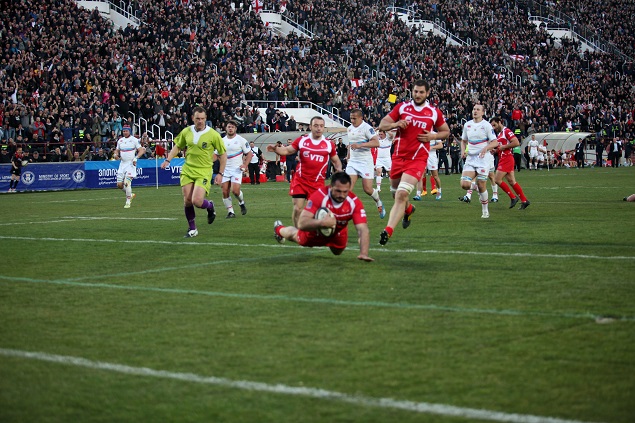
The try. Photo by Nino Alavidze/Agenda.ge.
Apparently, there is a whole range of reasons behind the success.
Whatever the case - go, Georgia!
 Tweet
Tweet  Share
Share
